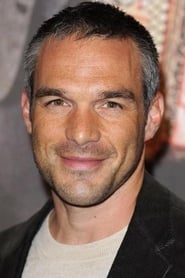
Ask Your Own Question
What is the plot?
In "Episode 4" of "Profiling Paris," the episode opens with a tense atmosphere as the team is called to investigate a murder that has taken place in a high-end fashion boutique in Paris. The victim, a well-known designer, is found lifeless in the back room, surrounded by sketches and fabric swatches. The scene is chaotic, with police tape cordoning off the area and reporters clamoring for information outside. The lead investigator, Camille, takes charge, directing her team to secure the scene and gather evidence.
As the team begins their investigation, they interview the boutique staff, who are visibly shaken. One of the employees, a young assistant named Léa, reveals that the designer had been receiving threatening messages in the days leading up to the murder. This revelation piques Camille's interest, and she decides to delve deeper into the designer's personal life, suspecting that the threats may be linked to a rivalry within the fashion industry.
The narrative shifts to a flashback of the designer at a fashion show, where tensions are high among competitors. The audience sees the designer's fierce demeanor as she interacts with other fashion icons, hinting at a cutthroat environment. This flashback serves to establish the stakes and the potential motives for the murder, as jealousy and ambition run rampant in the world of fashion.
Back in the present, Camille and her team analyze the threatening messages, which lead them to a rival designer, Marc, who had a public feud with the victim. They arrange to confront Marc, who initially denies any involvement but becomes increasingly agitated during the questioning. His emotional outburst raises suspicions, and Camille decides to keep a close watch on him.
As the investigation progresses, the team uncovers a hidden relationship between the victim and a wealthy patron, who had been funding her work. This patron, however, is not forthcoming with information, leading Camille to suspect that there may be more to their relationship than meets the eye. The tension escalates when the patron is found to have a solid alibi for the time of the murder, complicating the investigation further.
In a pivotal scene, Camille receives a tip-off about a secret meeting between Marc and the victim just days before her death. The team sets up surveillance to catch any incriminating evidence. During the stakeout, they witness a heated argument between the two, which ends with Marc storming off. This confrontation adds another layer of complexity to the case, as Camille grapples with the possibility that Marc may have acted out of rage.
The climax of the episode occurs when Camille and her team piece together the timeline of events leading up to the murder. They discover that the victim had planned to reveal a groundbreaking collection that would overshadow Marc's work, providing a strong motive for him. In a dramatic confrontation, Camille confronts Marc with the evidence, leading to a tense standoff where he finally breaks down and confesses to the murder, revealing that he acted in a moment of jealousy and desperation.
The episode concludes with the team reflecting on the case, as Camille expresses her relief that justice has been served, but also her sadness over the lengths to which people will go in the pursuit of success. The final scene shows the team leaving the boutique, the weight of the case lingering in the air as they step back into the vibrant streets of Paris.
🔥 Trending TV Shows Now
Browse All TV Shows →What is the ending?
In the ending of "Profiling Paris," Season 9, Episode 4, the team successfully solves the case involving a series of mysterious disappearances linked to a high-profile art dealer. The resolution brings closure to the victims' families, and the team reflects on the emotional toll of their work. Each character experiences a moment of personal growth, reaffirming their commitment to justice and their bond as a team.
As the episode draws to a close, the team gathers in their office, sharing a quiet moment of camaraderie. They acknowledge the challenges they faced and the lives they impacted, solidifying their resolve to continue their work in the future.
Now, let's delve into the ending in a more detailed narrative fashion:
The scene opens in the dimly lit interrogation room of the police station, where the tension is palpable. The lead investigator, Camille, sits across from the art dealer, her eyes sharp and focused. She presses him for answers about the recent disappearances, her determination evident. The dealer, initially confident, begins to crack under the pressure, revealing inconsistencies in his alibi. Camille's heart races as she senses they are close to uncovering the truth.
Cut to the bustling streets of Paris, where the team is piecing together the final clues. They gather in their office, surrounded by photographs and evidence boards. Each member of the team is visibly affected by the case; their faces reflect a mix of exhaustion and resolve. As they discuss their findings, the emotional weight of the victims' stories hangs heavily in the air. They share personal anecdotes about the victims, deepening their connection to the case and each other.
In a pivotal moment, they receive a tip-off that leads them to a hidden location where the missing individuals are being held. The team springs into action, adrenaline pumping as they prepare for a rescue operation. The camera captures their determination, showcasing their individual strengths as they work seamlessly together. The stakes are high, and the tension builds as they approach the location.
The rescue scene is intense and fraught with danger. The team navigates through the dark, abandoned warehouse, their flashlights cutting through the shadows. They find the missing individuals, weak but alive, and the relief is palpable. Camille's heart swells with a mix of triumph and sorrow as she comforts one of the victims, promising them safety. The emotional weight of the moment is underscored by the haunting music that plays in the background.
As the episode nears its conclusion, the team returns to the station, weary but victorious. They gather in their office, a sense of camaraderie enveloping them. Each character reflects on the case, sharing their thoughts and feelings. Camille expresses her gratitude for her team, acknowledging the emotional toll the case took on them all. They share a moment of silence for the victims, honoring their memory and the impact of their work.
The final scene shows the team leaving the office together, their bond stronger than ever. They walk through the streets of Paris, the city lights twinkling around them. Each character carries a sense of purpose, ready to face whatever challenges lie ahead. The camera pans out, capturing the essence of their commitment to justice and the unbreakable ties they have formed through their shared experiences.
In this ending, Camille, the lead investigator, emerges as a more resilient and empathetic leader, having faced the emotional challenges of the case head-on. The team members, each with their own personal growth, reaffirm their dedication to their work and to each other, setting the stage for future cases and adventures.
Is there a post-credit scene?
In "Profiling Paris," Season 9, Episode 4, there is no post-credit scene. The episode concludes without any additional content after the credits roll. The focus remains on the main storyline and character developments throughout the episode, leaving no lingering scenes or teasers for future episodes.
Which character takes the lead in solving the case in this episode?
In this episode, the character of Camille takes the lead in solving the case. Her determination and keen intuition drive the investigation forward as she navigates the complex world of art and deception.
What crime does the team investigate in Episode 4?
In Episode 4 of Profiling Paris, the team investigates a series of mysterious disappearances linked to a high-profile art gallery. The case unfolds as they uncover connections between the missing individuals and a controversial art exhibit.
What personal challenges does Camille face during the investigation?
During the investigation, Camille grapples with her own insecurities and the pressure of living up to her family's expectations. This internal conflict adds depth to her character as she seeks validation through her work.
How does the team gather evidence related to the art gallery?
The team gathers evidence by interviewing gallery staff and patrons, analyzing security footage, and examining the artwork itself for hidden clues. Their investigation reveals a web of secrets that complicates the case.
Are there any significant character interactions that impact the investigation?
Yes, significant interactions occur between Camille and a mysterious artist who becomes a key suspect. Their tense exchanges reveal layers of intrigue and emotional tension, influencing the direction of the investigation.
Is this family friendly?
"Profiling Paris," season 9, episode 4, contains themes and scenes that may not be suitable for all audiences, particularly children or sensitive viewers. Here are some potentially objectionable aspects:
-
Crime and Investigation Themes: The episode revolves around criminal activities, which may include discussions of violence or the aftermath of crimes that could be unsettling for younger viewers.
-
Emotional Distress: Characters may experience intense emotional moments, such as grief or fear, which could be distressing for sensitive individuals.
-
Mature Language: There may be instances of strong language or adult conversations that could be inappropriate for children.
-
Tense Situations: The narrative may include suspenseful or frightening scenarios that could provoke anxiety or fear.
-
Moral Ambiguity: Characters may face ethical dilemmas or morally complex situations that could be confusing or troubling for younger audiences.
These elements contribute to a more mature viewing experience, and parental discretion is advised.















